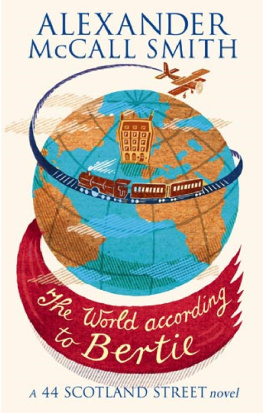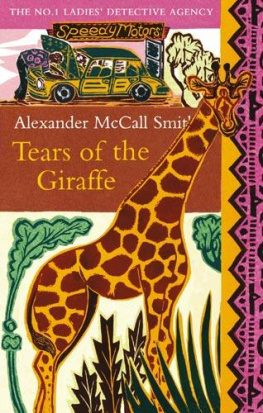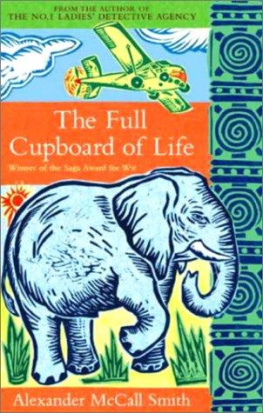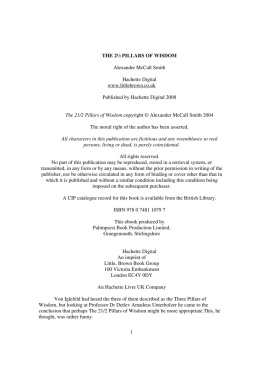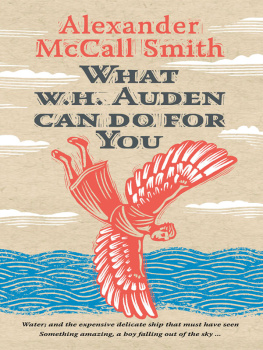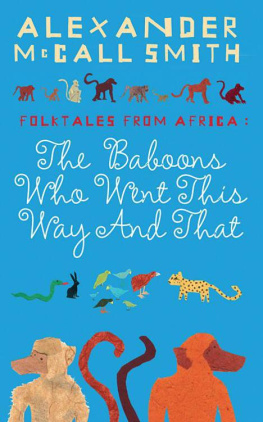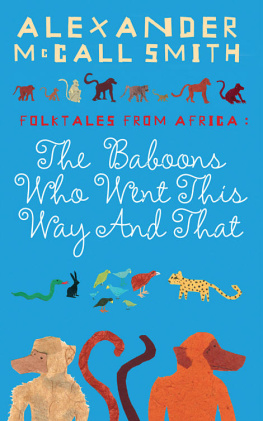Alexander McCall Smith - The Careful Use of Compliments
Here you can read online Alexander McCall Smith - The Careful Use of Compliments full text of the book (entire story) in english for free. Download pdf and epub, get meaning, cover and reviews about this ebook. year: 2007, publisher: Pantheon Books, genre: Science fiction. Description of the work, (preface) as well as reviews are available. Best literature library LitArk.com created for fans of good reading and offers a wide selection of genres:
Romance novel
Science fiction
Adventure
Detective
Science
History
Home and family
Prose
Art
Politics
Computer
Non-fiction
Religion
Business
Children
Humor
Choose a favorite category and find really read worthwhile books. Enjoy immersion in the world of imagination, feel the emotions of the characters or learn something new for yourself, make an fascinating discovery.

- Book:The Careful Use of Compliments
- Author:
- Publisher:Pantheon Books
- Genre:
- Year:2007
- Rating:5 / 5
- Favourites:Add to favourites
- Your mark:
- 100
- 1
- 2
- 3
- 4
- 5
The Careful Use of Compliments: summary, description and annotation
We offer to read an annotation, description, summary or preface (depends on what the author of the book "The Careful Use of Compliments" wrote himself). If you haven't found the necessary information about the book — write in the comments, we will try to find it.
Alexander McCall Smith: author's other books
Who wrote The Careful Use of Compliments? Find out the surname, the name of the author of the book and a list of all author's works by series.
The Careful Use of Compliments — read online for free the complete book (whole text) full work
Below is the text of the book, divided by pages. System saving the place of the last page read, allows you to conveniently read the book "The Careful Use of Compliments" online for free, without having to search again every time where you left off. Put a bookmark, and you can go to the page where you finished reading at any time.
Font size:
Interval:
Bookmark:
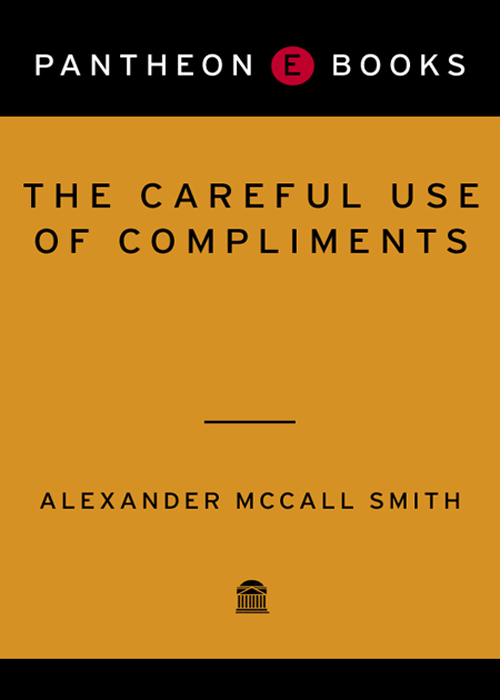
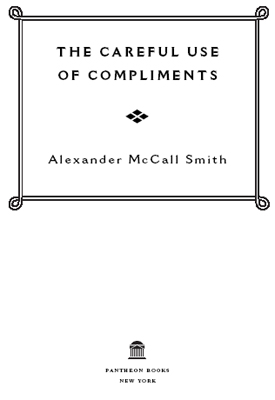
Contents
This book is for Daniel Shuman
CHAPTER ONE

T AKE ONE HUNDRED PEOPLE , said Isabel.
Jamie nodded. One hundred.
Now, out of those one hundred, Isabel continued, how many will mean well?
It was typical of the sort of trying question Isabel asked herself, in the way in which we sometimes ask ourselves questions that admit of no definitive answer. She was an optimist when it came to humankind, unfashionably so, and so she thought the answer was ninety-eight, possibly even ninety-nine. Jamie, the realist, after a few moments thought, said eighty.
But this was not a question which could be disposed of so easily; it raised in its wake other, more troubling questions. Were those one or two people the way they were because of the throw of the genetic dicea matter of patterns and repeats deep in the chemistry of their DNAor was it something that went wrong for them a long time ago, in some dark room of childhood, and stayed wrong? Of course there was quite another possibility: they chose.
She was sitting in a delicatessen when she remembered this conversation with Jamie. Now, from that convenient vantage point, she looked out of the windowthat man who was crossing the road right then, for example; the one with the thin mouth, the impatient manner, and the buttoned collar was perhaps one of that tiny minority of the malevolent. There was something about him, she felt, that made one uneasy; something in his eyes which suggested ruthlessness, a man who would not wait for others, who did not care, who would suffer from road rage even while walkingShe smiled at the thought. But there was certainly something unsettling in his demeanour, a hint of poisoned sexuality about him, she felt; a whiff of cruelty, something not quite right.
She looked away; one did not want such a person to see one staring; nor, she reminded herself, did she want to catch herself engaging in such idle speculation. Imagining things about perfect strangers might seem a harmless enough pursuit, but it could lead to all sorts of ridiculous fantasies and fears. And Isabel was aware that of all her manifold failings, thinking too much about things was one of the most egregious.
Of course a delicatessen in Edinburgh was not the most obvious place to entertain such thoughts on the nature of good and evil, but Isabel was a philosopher and knew full well that philosophical speculation came upon one in the strangest places and at the strangest times. The delicatessen was owned by her niece, Cat, and in addition to selling the usual things that such shops soldthe sun-dried tomatoes and mozzarella cheese, the fresh anchovy fillets and the small bars of Austrian marzipanthis delicatessen served coffee at the three or four small marble-topped tables that Cat had found on a trip to the Upper Loire valley and that she had carted back to Scotland in a hired self-drive van.
Isabel was sitting at one of these tables, a freshly made cappuccino before her, a copy of that mornings Scotsman newspaper open at the crossword page. Her coffee had been made by Cats assistant, Eddie, a shy young man to whom something terrible and unexplained had happened some time ago and who was still awkward in his dealings with Isabel and with others. Eddie had gained in confidence recently, especially since he had taken up with a young Australian woman who had taken a job for a few months in the delicatessen, but he still blushed unexpectedly and would end a conversation with a murmur and a turning away of the head.
Youre by yourself, said Eddie, as he brought Isabels coffee to her table. Wheres the He trailed off.
Isabel smiled at him encouragingly. The baby? Hes called Charlie, by the way.
Eddie nodded, glancing in the direction of Cats office at the back of the delicatessen. Yes, of course, Charlie. How old is he now?
Three months. More or less exactly.
Eddie absorbed this information. So he cant say anything yet?
Isabel began to smile, but stopped herself; Eddie could be easily discouraged. They dont say anything until theyre quite a bit older, Eddie. A year or so. Then they never stop. He gurgles, though. A strange sound that means Im perfectly happy with the world. Or thats the way I understand it.
Id like to see him sometime, said Eddie vaguely. But I think that He left the sentence unfinished, yet Isabel knew what he meant.
Yes, she said, glancing in the direction of Cats door. Well, that is a bit complicated, as you probably know.
Eddie moved away. A customer had entered the shop and was peering at the counter display of antipasti; he needed to return to his duties.
Isabel sighed. She could have brought Charlie with her, but she had decided against it, leaving him instead at the house with her housekeeper, Grace. She often brought him to Bruntsfield, wheeling him, a wrapped-up cocoon, in his baby buggy, negotiating the edge of the pavement with care, proud in the way of a new mother, almost surprised that here she was, Isabel Dalhousie, with her own child, her son. But on these occasions she did not go into Cats delicatessen, because she knew that Cat was still uncomfortable about Charlie.
Cat had forgiven Isabel for Jamie. When it had first become apparent that Isabel was having an affair with him, Cat had been incredulous: Him? My ex-boyfriend? You? Surprise had been followed by anger, expressed in breathless staccato: Im sorry. I cant. I just cant get used to it. The idea.
There had been acceptance, later, and reconciliation, but by that stage Isabel had announced her pregnancy and Cat had retreated in a mixture of resentment and embarrassment.
You disapprove, said Isabel. Obviously.
Cat had looked at her with an expression that Isabel found impossible to interpret.
I know he was your boyfriend, Isabel continued. But you did get rid of him. And I didnt set out to become pregnant. Believe me, I didnt. But now that I am, well, why shouldnt I have a child?
Cat said nothing, and Isabel realised that what she was witnessing was pure envy; unspoken, inexpressible. Envy makes us hate what we ourselves want, she reminded herself. We hate it because we cant have it.
By the time that Charlie arrived, tumblingor so it felt to Isabelinto the world under the bright lights of the Royal Infirmary, Cat was talking to Isabel again. But she did not show much warmth towards Charlie; she did not offer to hold him or to kiss him, although he was her cousin. Isabel was hurt by this, but decided that the best thing to do was not to flaunt Charlie before her niece, but allow her to come round in her own time.
You cant carry on disliking a baby for long, said Grace, who, imbued with folk wisdom, was often right about these things. Babies have a way of dealing with indifference. Give Cat time.
Time. She looked at her watch. She had put Charlie down for his nap almost two hours ago and he would be waking up shortly. He would want feeding then, and although Grace could cope with that, Isabel liked to do it herself. She had stopped breast-feeding him only a few days after his birth, which had made her feel bad, but the discomfort had been too great and she had found herself dreading the experience. That was not a way to bond with ones child, she thought; babies can pick up the physical tension in the mother, the drawing back from contact. So she had switched to a baby formula.
Next pageFont size:
Interval:
Bookmark:
Similar books «The Careful Use of Compliments»
Look at similar books to The Careful Use of Compliments. We have selected literature similar in name and meaning in the hope of providing readers with more options to find new, interesting, not yet read works.
Discussion, reviews of the book The Careful Use of Compliments and just readers' own opinions. Leave your comments, write what you think about the work, its meaning or the main characters. Specify what exactly you liked and what you didn't like, and why you think so.

